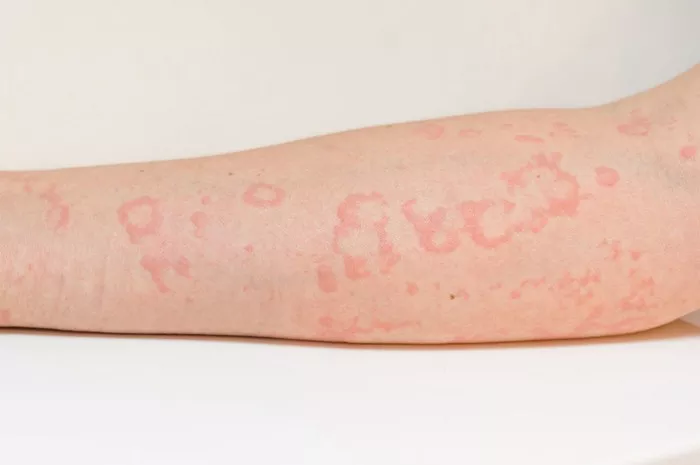Eczema, also known as atopic dermatitis, is a chronic skin condition characterized by inflammation, itching, and redness. Managing eczema can be challenging, as flare-ups can occur due to various triggers such as stress, allergens, and changes in weather. While there is no cure for eczema, there are numerous strategies to alleviate symptoms and improve skin health. One such approach is incorporating soothing ingredients into your bath routine. Bathing can hydrate the skin and help to reduce inflammation and itching, providing much-needed relief for eczema sufferers. In this article, we explore the best ingredients to put in your bath for eczema relief.
Understanding Eczema and Bathing
Before delving into the specifics of what to put in your bath for eczema, it’s essential to understand how bathing can benefit individuals with this condition. Eczema is often associated with dry skin, which can exacerbate symptoms such as itching and irritation. Bathing helps to hydrate the skin, replenishing moisture and restoring the skin barrier function. However, it’s crucial to approach bathing with eczema mindfully, as certain bathing practices can actually worsen symptoms.
Tips for Bathing with Eczema
Use Lukewarm Water: Hot water can strip the skin of its natural oils, leading to further dryness and irritation. Opt for lukewarm water instead, which is gentler on the skin.
1. Limit Bath Time: Prolonged exposure to water can deplete the skin’s moisture. Keep your baths short, ideally around 10 to 15 minutes.
2. Choose Mild, Fragrance-Free Products: Harsh soaps and fragranced bath products can irritate eczema-prone skin. Look for gentle, fragrance-free cleansers and bath oils specifically formulated for sensitive skin.
3. Pat Dry, Don’t Rub: After bathing, gently pat your skin dry with a soft towel instead of rubbing, which can further irritate sensitive skin.
4. Moisturize Immediately: Lock in moisture by applying a rich, emollient moisturizer to damp skin immediately after bathing. This helps to prevent dryness and maintain hydration.
Soothing Ingredients for Eczema Baths
Now that we’ve established the importance of bathing for eczema and outlined some essential bathing tips, let’s explore the best ingredients to incorporate into your bath for soothing relief:
1. Colloidal Oatmeal
Colloidal oatmeal is a finely ground oatmeal that has been boiled down to extract its beneficial properties. It contains compounds known as avenanthramides, which possess anti-inflammatory and antioxidant properties. When added to bathwater, colloidal oatmeal forms a milky suspension that coats the skin, providing a protective barrier and soothing irritation. It also helps to relieve itching and dryness, making it an excellent choice for eczema baths.
To use colloidal oatmeal in your bath, simply sprinkle a few scoops into warm water and mix until fully dissolved. Soak in the oatmeal-infused bath for 10 to 15 minutes to reap its soothing benefits.
2. Dead Sea Salt
Dead Sea salt is renowned for its high mineral content, including magnesium, calcium, and potassium. These minerals have been shown to have anti-inflammatory and hydrating properties, making Dead Sea salt baths particularly beneficial for eczema sufferers. Bathing in Dead Sea salt can help to reduce inflammation, soothe itching, and promote skin hydration.
To create a Dead Sea salt bath, dissolve a generous amount of Dead Sea salt in warm water and soak for 10 to 15 minutes. Rinse off with lukewarm water after bathing and follow up with a moisturizer to seal in hydration.
3. Baking Soda
Baking soda, or sodium bicarbonate, is a versatile ingredient with numerous household uses, including skincare. It has mild exfoliating properties and can help to balance the skin’s pH levels, which is beneficial for eczema-prone skin. Baking soda baths can soothe itching, reduce redness, and promote overall skin comfort.
To incorporate baking soda into your bath, add about half a cup to warm water and stir until dissolved. Soak in the baking soda bath for 10 to 15 minutes, then rinse off with lukewarm water and pat dry.
4. Coconut Oil
Coconut oil is a popular natural remedy for various skin conditions, including eczema. It is rich in fatty acids that help to moisturize and nourish the skin, restoring its natural barrier function. Additionally, coconut oil has anti-inflammatory and antimicrobial properties, which can help to calm inflammation and prevent infections in eczema-affected skin.
To use coconut oil in your bath, simply add a few tablespoons of melted coconut oil to warm water and mix well. Soak in the coconut oil-infused bath for 10 to 15 minutes to allow the oil to penetrate the skin. After bathing, pat your skin dry and apply an additional layer of coconut oil or a moisturizer to seal in hydration.
5. Chamomile
Chamomile is a gentle herb known for its soothing and anti-inflammatory properties. It contains compounds such as bisabolol and chamazulene, which have been shown to calm irritation and reduce redness in the skin. Chamomile baths can help to alleviate itching, promote relaxation, and soothe eczema flare-ups.
To prepare a chamomile bath, steep a handful of dried chamomile flowers or several chamomile tea bags in warm water for about 10 minutes. Strain the infusion and pour it into your bath. Soak in the chamomile-infused water for 10 to 15 minutes, then pat your skin dry and apply a moisturizer to lock in hydration.
Conclusion
Bathing can be a soothing and therapeutic experience for individuals with eczema, provided that the right ingredients are used. Incorporating soothing ingredients such as colloidal oatmeal, Dead Sea salt, baking soda, coconut oil, and chamomile into your bath routine can help to hydrate the skin, reduce inflammation, and alleviate itching associated with eczema. Remember to bathe mindfully, using lukewarm water and gentle cleansers, and follow up with a moisturizer to seal in hydration. With consistent care and attention, you can find relief in the tub and better manage your eczema symptoms for healthier, happier skin.
























